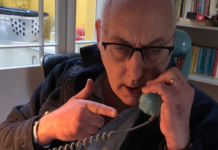- Disabling protests - 30th June 2025
- A good storybook - 30th June 2025
- Cancel culture part three - 27th June 2025

Reporting political shenanigans to gain votes has long been central for our Editor, Welshman Phil Parry, and now comes news that the autocratic ruler of Turkey Recep Erdogan, could be reversing an unorthodox widely-condemned economic policy, which he may have used purely to secure re-election.
Previously Phil has described how he was helped to break into the South Wales Echo office car when he was a cub reporter, recalled his early career as a journalist, the importance of experience in the job, and made clear that the ‘calls’ to emergency services as well as court cases are central to any media operation.
 He has also explored how poorly paid most journalism is when trainee reporters had to live in squalid flats, the vital role of expenses, and about one of his most important stories on the now-scrapped 53 year-old BBC Cymru Wales (BBC CW) TV Current Affairs series, Week In Week Out (WIWO), which won an award even after it was axed, long after his career really took off.
He has also explored how poorly paid most journalism is when trainee reporters had to live in squalid flats, the vital role of expenses, and about one of his most important stories on the now-scrapped 53 year-old BBC Cymru Wales (BBC CW) TV Current Affairs series, Week In Week Out (WIWO), which won an award even after it was axed, long after his career really took off.
Phil has explained too how crucial it is actually to speak to people, the virtue of speed as well as accuracy, why knowledge of ‘history’ is vital, how certain material was removed from TV Current Affairs programmes when secret cameras had to be used, and some of those he has interviewed.
Earlier he disclosed why investigative journalism is needed now more than ever although others have different opinions, and how information from trusted sources is crucial.

They know no bounds.
From my experience, politicians will do almost ANYTHING to win an election, but let’s concentrate on the economics.
Timing is viewed as essential, and party leaders will engineer economic indicators so that they point in a certain direction on the day of an election and voters are made to feel better off, but once back in power they don’t care, and usually revert to a policy which might be better in the long-term, yet will make the electorate feel WORSE off in the short run!
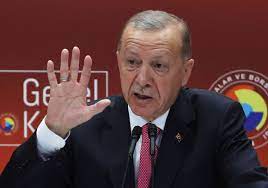
We may have seen EXACTLY this play out in the controversial re-election of Turkey’s strongman ruler Recep Erdogan, who has for six years been Chairman of the right-wing AK Parti.
Over the past year or so the country has adopted an absurd economic policy, with interest rates kept unnaturally low causing galloping inflation (reducing people’s debt-burden), and the Turkish lira held falsely high so that voters could boast of having a ‘strong’ currency.


In 2022 it’s estimated (reliable figures are VERY hard to come by) that Turkey had an average inflation rate of 72.3 per cent, but unofficially it could have been even higher than this eye-watering figure!
To give you a means of comparison – the UK’s rate was 11.1 per cent in October (which was reckoned to be extremely high), and the world’s average during last year was 8.3 per cent.
Inflation is bad for some because people can’t plan (a loaf of bread might be a lot more expensive the following day), but it is a bit like a sugar rush for others, and in the short term might make them feel better off, because apart from mortgages appearing lower. Gross Domestic Product (GDP) is kept higher, which, apart from anything else, generates extremely positive headlines.

On the day of Mr Erdogan’s re-election the inflation rate in Turkey was still almost 40 per cent (it had come down a bit because of his extraordinary promise that people would have free gas to heat their homes, which also helped his core voting base).
Now, though, Mr Erdogan is back in power and things have changed.

His newly-appointed Treasury and Finance minister Mehmet Simsek has more credibility in Western countries than an earlier one, the president’s own son-in-law Berat Albaytak.
But he is not the only figure representing different times in Turkey.

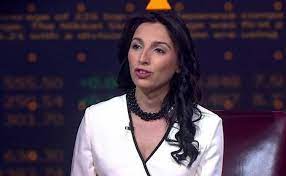
Hafize Gaye Erkan, a US-based senior finance executive, was earlier this month appointed as the new central bank governor, after pursuing a stellar career in the US corporate world with stints in financial services, banking, investment, risk management, technology, and digital innovation.
She succeeds Sahap Kavcioglu, who has spearheaded Mr Erdogan’s controversial rate-slashing drive since 2021, basically doing as he was told.
A former co-Chief Executive Officer (CEO) at First Republic Bank, Ms Erkan is the country’s FIFTH central bank chief in four years, after Mr Erdogan fired previous governors as part of his brazen economic electioneering.
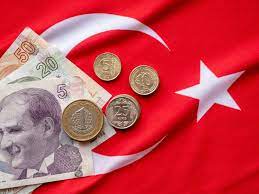
On the back of all this we now have news that Mr Semsek has decided (with Mr Erdogan’s blessing presumably) to allow the Turkish lira to float freely on international exchanges, instead of being kept ridiculously high.
The lira has returned to its proper place (plunging 7.6 per cent to a record low in the process), with traders calling it a “strong signal” that Turkey is now moving away from state controls.
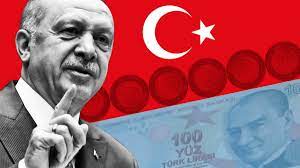
A high exchange rate for the lira made Turks feel good about themselves because they possessed a ‘strong’ currency, and it bought more abroad (although importers were hammered).
Mr Erdogan used up tens of billions of dollars this year alone to hold the lira steady, with the reserves hitting an all-time low of negative $4.4 billion last month as demand surged through the elections.

But this COULDN’T be sustained, and Mr Simsek has said: “Turkey has no choice left but to return to a rational basis”.
Such words will be music to the ears of many foreign investors, who had given up on Turkey over the past couple of years.
The run-up to the vote had become increasingly rancorous not just because of Mr Erdogan’s nonsensical economic policy.
In one incident an opposition official was fatally stabbed in front of a party office in the northern coastal town of Ordu.
However the interest-rate cuts had done their job and sustained economic growth, which reached an annual rate of 4 per cent in the first three months of this year, and the currency interference kept the lira artificially strong for voters.
I suppose Mr Erdogan is happy that he has now secured re-election.
But a lot of his voters won’t be in years to come…

The memories of Phil’s extraordinary decades long award-winning career in journalism (when he often covered political stories like this), as he was gripped by the rare neurological disabling condition Hereditary Spastic Paraplegia (HSP), have been released in a major book ‘A Good Story’. Order it now.
Another book, though, has not been published, because it was to have included names.

Tomorrow – Phil looks at how the careful choice of words has always been vital for him, and this has now been put centre stage by the huge storm which followed the Bank of England (BoE) Chief Economist, Huw Pill, saying that people “need to accept” they are poorer and stop seeking pay increases, so pushing prices higher.
Also on The Eye – why sometimes our journalism serves a purpose…







